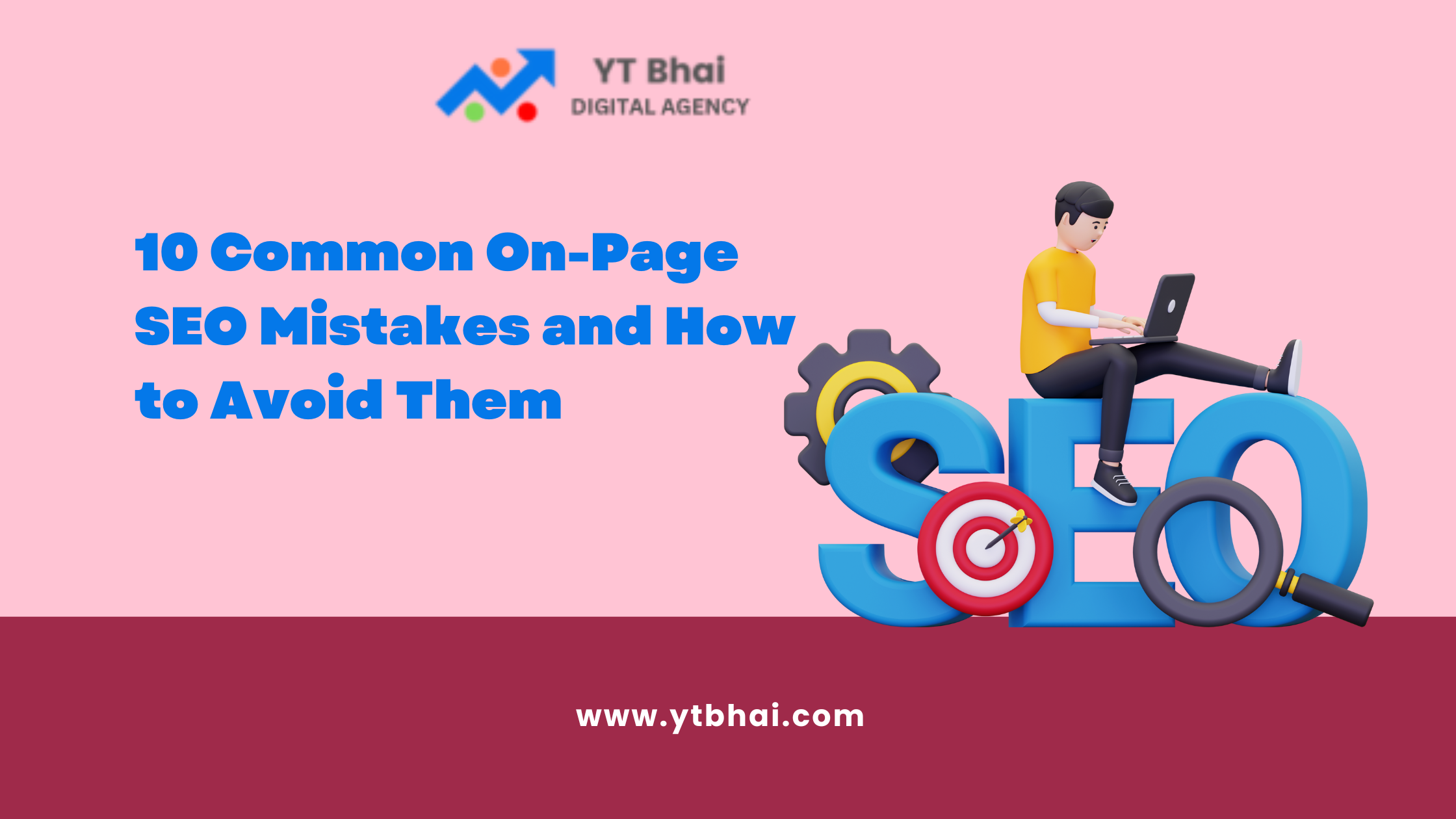
On-page SEO plays a critical role in determining your website’s visibility and ranking on search engines. However, even seasoned marketers can make mistakes that hinder their performance. This guide explores 10 common on-page SEO mistakes and provides actionable solutions to fix them.
The 10 Common On-Page SEO Mistakes
Ignoring Keyword Research
Mistake:
Many creators overlook comprehensive keyword research, targeting generic or highly competitive keywords.
How to Avoid:
- Use tools like Google Keyword Planner or SEMrush to identify long-tail keywords with lower competition.
- Focus on user intent to find keywords that align with your audience’s needs.
Overusing or Stuffing Keywords
Mistake:
Keyword stuffing leads to unnatural content, harming readability and rankings.
How to Avoid:
- Maintain a keyword density of 1-1.5%.
- Use synonyms and natural language variations of your keywords.
Missing or Poor Meta Tags
Mistake:
Leaving meta titles and descriptions blank or creating generic tags diminishes your CTR.
How to Avoid:
- Craft unique meta titles with the target keyword.
- Keep descriptions concise (under 160 characters) and action-oriented.
| Meta Tag Example | Good | Bad |
|---|---|---|
| Meta Title | “10 On-Page SEO Mistakes to Avoid in 2024” | “On-Page SEO Tips” |
| Meta Description | “Discover 10 common SEO mistakes and how to fix them with actionable tips.” | “Learn SEO tips for success.” |
Not Optimizing Header Tags
Mistake:
Improper use of header tags (H1 to H6) affects content structure and readability.
How to Avoid:
- Use only one H1 tag per page for the main topic.
- Use H2 and H3 tags to break down content into subsections.
Slow Page Loading Speed
Mistake:
A slow website frustrates users and leads to higher bounce rates.
How to Avoid:
- Compress images using tools like TinyPNG.
- Use a Content Delivery Network (CDN) to reduce server response times.
- Minimize CSS, JavaScript, and HTML files.
Not Being Mobile-Friendly
Mistake:
Failing to optimize for mobile users results in poor user experiences and lower rankings.
How to Avoid:
- Use responsive web design.
- Test mobile usability using Google’s Mobile-Friendly Test tool.
Weak Internal Linking
Mistake:
Poor internal linking leads to a lack of content discoverability and site authority.
How to Avoid:
- Link to related blog posts or pages using descriptive anchor text.
- Create a logical link hierarchy to guide users seamlessly.
Forgetting About Image Optimization
Mistake:
Uploading large images or failing to add alt text negatively impacts SEO and accessibility.
How to Avoid:
- Use descriptive alt text containing the focus keyword.
- Compress images for faster loading times.
Not Using Schema Markup
Mistake:
Ignoring structured data results in missed opportunities to appear in rich snippets.
How to Avoid:
- Use schema markup generators or Google’s Structured Data Markup Helper.
- Test structured data using Google’s Rich Results Test tool.
Ignoring Content Updates
Mistake:
Failing to refresh outdated content reduces its relevance over time.
How to Avoid:
- Regularly audit your content and update statistics, links, and strategies.
- Add new sections or insights to keep content fresh and valuable.
Conclusion
By addressing these common on-page SEO mistakes, you can significantly enhance your website’s performance. Consistent audits, staying updated with best practices, and focusing on user experience will keep your content ahead of the competition.
FAQs
1. What is on-page SEO?
On-page SEO refers to optimizing elements on a webpage, such as content, meta tags, and structure, to improve search engine rankings.
2. How often should I update my content?
You should audit and update your content every 6-12 months to ensure relevance and accuracy.
3. Why are meta tags important?
Meta tags help search engines and users understand the content of your page, improving click-through rates and rankings.
4. What is a good keyword density?
Aim for a keyword density of 1-1.5% to avoid over-optimization while keeping content natural.
5. How does mobile optimization affect SEO?
Mobile optimization ensures a seamless experience for mobile users, which is crucial as search engines prioritize mobile-first indexing.
